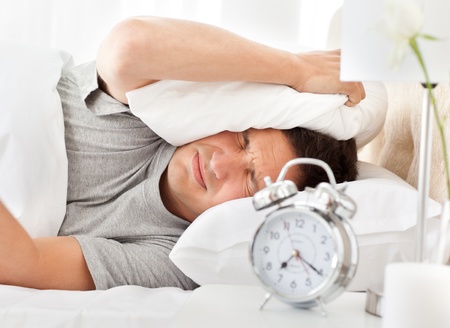Calendar
December 2025 S M T W T F S 1 2 3 4 5 6 7 8 9 10 11 12 13 14 15 16 17 18 19 20 21 22 23 24 25 26 27 28 29 30 31 Archives
- June 2018
- April 2018
- March 2018
- February 2018
- January 2018
- December 2017
- November 2017
- October 2017
- September 2017
- August 2017
- July 2017
- April 2017
- March 2017
- February 2017
- January 2017
- December 2016
- November 2016
- October 2016
- September 2016
- July 2016
- June 2016
- May 2016
- April 2016
- March 2016
- February 2016
- January 2016
- December 2015
- November 2015
- October 2015
- September 2015
- August 2015
- July 2015
- June 2015
- May 2015
- August 2013
- June 2013
- May 2013
- March 2013
- February 2013
- January 2013
- July 2012
- June 2012
- October 2011
- September 2011
- August 2011
- January 2011
Categories
Sleeping
6 Likely Reasons why you are not getting enough sleep
 The last thing that you might want after an exhausting day at the office is tossing and turning in bed the whole night and getting up next morn, feeling restless and piqued. Sleeping soundly through the night, for 7-8 hours, is indispensable if you want to start and end the following day on a high note. However, a good majority of people, both young and old, spend sleepless nights or make do with just a few hours of sleep.
The last thing that you might want after an exhausting day at the office is tossing and turning in bed the whole night and getting up next morn, feeling restless and piqued. Sleeping soundly through the night, for 7-8 hours, is indispensable if you want to start and end the following day on a high note. However, a good majority of people, both young and old, spend sleepless nights or make do with just a few hours of sleep.
The stress that results from living a fast-paced and hectic life is surely the chief culprit that keeps an individual awake when he or she should be sleeping. On the other hand, not being able to sleep peacefully on a recurrent basis eventually leads to several health issues. Besides stress, leading an undisciplined lifestyle, typified by bad habits could also rob you of your sleep.
Following are some of the most common gaffes that many people make which ultimately prevent them from dozing off along with tips on how to tweak them:-
1. You are hitting the sack too late
Most of us spend the better part of the day trying to complete too many tasks in too little time. We rush through our meals and more often than not, skip our daily workout regimen. When you reach home, you’re thoroughly spent, and by the time you settle down in your sofa to watch your favorite TV program, it’s time to have dinner and hit the sack.
However instead of rushing to bed, you keep on dithering and deferring, and finally, when you do, you find yourself staring at the ceiling hours later. Doctors and sleep therapists suggest that you should retire for the day latest by 9 pm to enjoy a good night’s sleep and to get up feeling refreshed the morning after. There are some tasks which you can delegate to your spouse or postpone until the weekend.
2. Switch off or dim lights before going to bed
The idea of using LED lights is always praiseworthy as this type of lighting is environmentally friendly and also goes a long way in helping you to save on utility bills. However, the downside of using LEDs is that their brightness or luminosity could adversely affect your sleep. Switch off or dim the lights before going to bed.
3. You are not following a routine
Your physiological systems could go haywire if you do not sleep, eat, exercise or work at fixed times. Try following a regular sleeping pattern as well as complete all your routine tasks at the same specific times every day.
4. You are restless and worried about having lost sleep
Being overly anxious about having lost sleep yesterday night could keep you awake for the subsequent nights as well. Just tell yourself it’s perfectly OK to have lost sleep the previous night.
5. Some medications could be keeping you awake
Certain medications including antidepressants, analgesics, and blood pressure medications could keep you from shutting your eyes. Consult your doctor and he or she may put you on another drug.
6. You are glued to the computer or TV when you should be sleeping
There’s no earthly reason why you should end up stressing yourself watching your favorite team win or lose when the outcome is not going to make a difference to your life. Switch off the TV before it’s too late and jump to bed.
Picture Credit: 12122
Posted in Chropractor, Fitness, Health, Healthy living, Sleeping
Tagged favorite TV program, health issues, sleep therapists, sleepless nights, undisciplined lifestyle
Comments Off on 6 Likely Reasons why you are not getting enough sleep
Getting A Good Sleep Is All Around Helpful
 There’s no underestimating the benefits of a good, sound, sleep.
There’s no underestimating the benefits of a good, sound, sleep.
Rest is essential on multiple levels regarding one’s own well-being, physically, and mentally.
The body has its own repair systems. When we are at rest, these repair systems perform at maximum efficiency. Without rest, we end up compromising our health across the board. The human body and brain are very complex systems that interact with its environment that can introduce harmful agents like toxins and microorganisms. The body needs rest so it can self-diagnose itself and issue out the proper defenses and rehab. A proper diet is essential in this.
A good sleep helps the body to regulate itself, reboot systems, and do repair. We often overtax ourselves in one way or another, and in Western countries like the US, food is the main problem. Foods aren’t processed properly, toxins, radiation, and more. It can cause inflammation throughout the system and cause serious damage. If one plays sports or has a labor intensive job, you definitely need sleep. For people who use intense concentration like administrators, artists, and such, getting that sleep is essential.
A good sleep first of all repairs body damage. It regulates the endocrine system, circulatory system, and everything else.
One’s mental health is at issue too. There are several levels of sleep ranging from none REM sleep to REM sleep. REM stands for rapid-eye-movement. When one drifts off to sleep, you first encounter non REM sleep. You can be awakened easily. With REM sleep, this is where dreaming occurs. While in deep sleep the body repairs and grows tissue, tests systems, and importantly, strengthens the immune system.
REM sleep with dreaming allows for the mind to troubleshoot issues that are unresolved. The mind examines information and processes it. Repairs memory gaps or modifies memory. It overall relieves mental and physical stress.
Sleep is nature’s way of growing you. During the day you provide nutrition, exercise, protection, and more, but you need time to repair the damage of everyday survival which can be brutal. We have to flush out toxins, battle diseases, solve mental challenges, prevent further injuries, and more. Less sleep means the body and brain and mind can’t rehab itself and that leads to dangers in the waking world.
Without sleep you’ll be more vulnerable to diseases, stumbling and falls, your senses will be less than optimum. Your sight, hearing, sense of direction, and more won’t be spot on. You’ll be inviting disaster along the way.
To get that much needed rest, there are some simple ways to handle things. If you’re not suffering from insomnia and you don’t need to see a doctor for the condition, then it’s just a matter of discipline to get what you need.
Try to schedule your sleep time better. Demand the family to knock off the noise. Get comfortable before getting in the bed. You want peace of mind and control. Look for the things that help you sleep better. With some trial and error you’ll find your regimen. Once you’ve nailed down what works for you, just keep a steady course and see how it goes.
Image credit: choreograph
Posted in Sleeping, Wellness
Tagged REM Sleep, Sleep benefits
Comments Off on Getting A Good Sleep Is All Around Helpful
The Pitfalls of Excessive Sleeping

To snooze or not to snooze is a quandary or predicament that may not have been on Shakespeare’s mind while he was busy penning the Hamlet. However, most of us who’ve trouble getting 7-8 hours of sound sleep every night or those who feel lethargic despite being in bed for 10 hours should have enough reasons to feel alarmed if slumber experts are to be believed. Just as lack of quality sleep may lead to your gaining weight, developing cardiac issues, suffering from diabetes, and worst of all premature demise, too much of snoozing can also cause the grave health issues.
Professor of sleep medicine at Harvard Medical School is of the opinion that individuals with a tendency to oversleep are at greater risk of suffering from lifestyle diseases compared to those who doze for 7-8 hours. It is estimated that about 30% of the adult US population slumber for more than 8 hours. The tendency or proclivity to stay in bed for longer hours increases as you grow older. Sleep specialists have not been able to establish whether this propensity is a symptom of some underlying sickness or a sign that you’re vulnerable to some disease or disorder in the future.
The general feeling which takes precedence is that sleeping longer than is necessary on an everyday basis makes you a potential candidate for health issues. Some medical experts like Michael Irwin, professor of psychiatry and behavioral sciences at UCLA (David Geffen School of Medicine) feel that sleeping extended hours means you’re not sleeping soundly.
In other words, you’re staying put in bed for hours but getting sound sleep. The takeaway is that neither insufficient nor excessive snoozing is conducive from the perspective of health. You could be at risk of suffering the following health problems if you oversleep occasionally.
1. Your heart takes the maximum toll
Sleeping for long is certainly not good for your heart, regardless of what you think. Of all the diseases and disorders, maximum adults perish from heart disease. Your chances of dying go up by 34 percent if you log in over 8 hours of sleep. Women are at far greater risk of contracting heart disease and succumbing to a heart attack in comparison to men simply on account of their sleeping longer hours.
2. You’re at risk of developing diabetes
Sleeping more results in blood sugar levels going up abnormally which puts you in the high risk zone of getting bogged down with type 2 diabetes. Your staying in bed for 10 hours means you remain sedentary for longer hours which again increase risks of becoming overweight and suffering from diabetes.
3. You could fall prey to depression
The more you sleep, the higher your chances of falling prey to depression. However, this is just a generalization which is yet to be proven clinically. More often than not, symptoms of depression may get worse if you remain cosseted in bed with your eyes shut. Slumbering soundly for 7-8 hours and remaining physically active will surely keep you in high spirits.
4. You’ll have problems concentrating
If you’re a chronic late riser, you’ll be at your wits’ end in solving simple everyday tasks and find it an uphill task to concentrate. Your brain will function at a slower rate, and it may sound unbelievable but you’re also at an enhanced risk of premature or untimely demise.
Image credit: Wavebreak Media Ltd
Posted in Health, Healthy living, Sleeping
Comments Off on The Pitfalls of Excessive Sleeping









